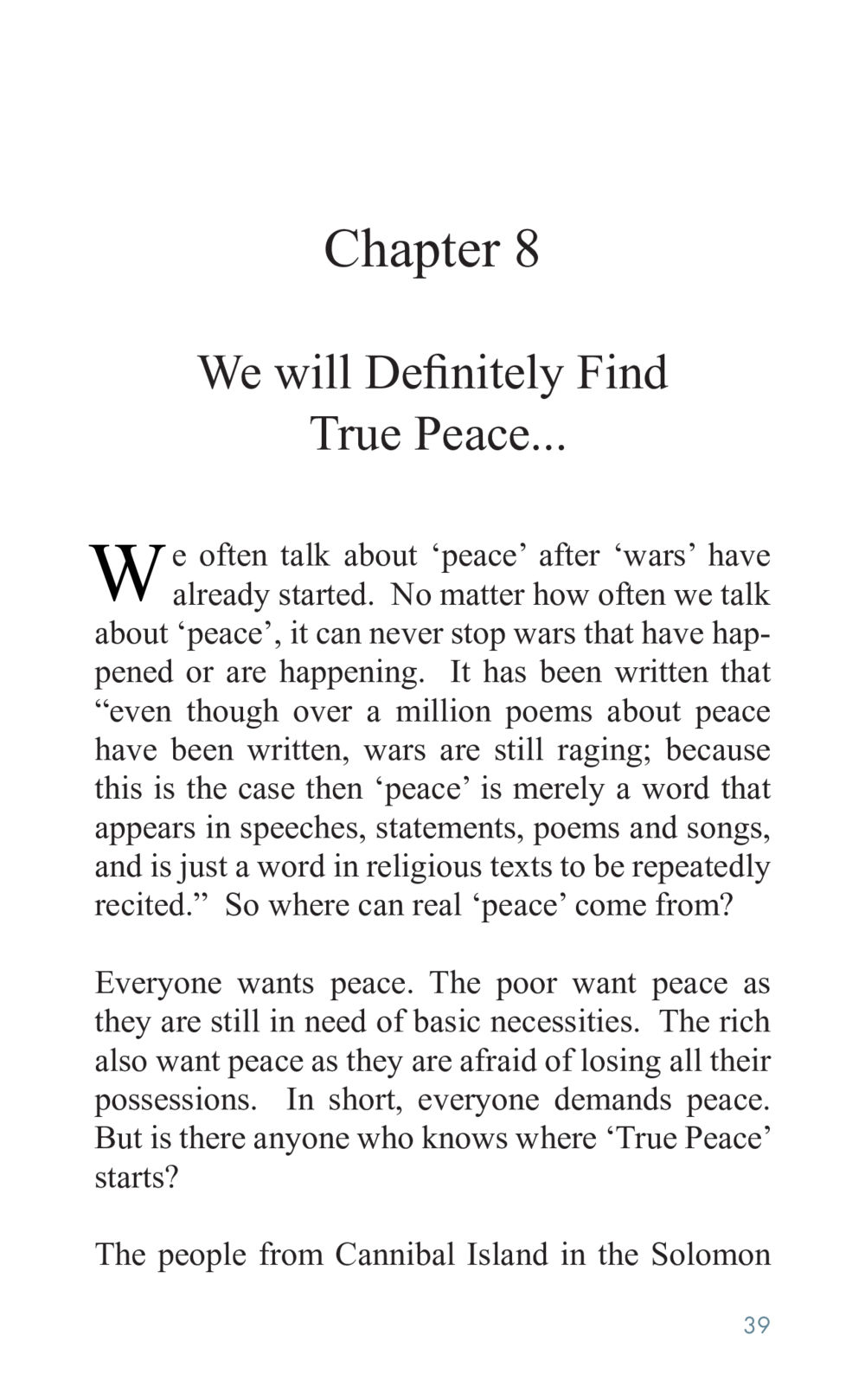Finding True Peace: Beyond Words and Wars : หน้า 39/59
Golden Age of Inner Peace : หน้า 39/59 Explore the deeper meaning of 'True Peace' beyond just the words spoken in speeches and literature.
0 ครั้ง

สรุปเนื้อหา
This chapter discusses the concept of 'True Peace' and how it is often romanticized in literature and rhetoric but remains elusive in reality. It highlights the desire for peace among all societal classes—both the rich and the poor—while questioning where this 'True Peace' can actually originate. Despite millions of poems and discussions about peace, conflicts continue to exist. The text invites readers to reflect on the genuine sources of peace, suggesting that it may be more complex and challenging than traditional narratives imply. It draws a contrast between the ideal of peace and the harshness of ongoing strife, raising philosophical inquiries about the true starting point for achieving peace in the world. The reference to Cannibal Island implies a deeper exploration of human nature in relation to peace and conflict.
หัวข้อประเด็น
-Concept of peace
-True vs. superficial peace
-Impact of war
-Desires across socioeconomic classes
-Philosophical inquiries about peace



























































